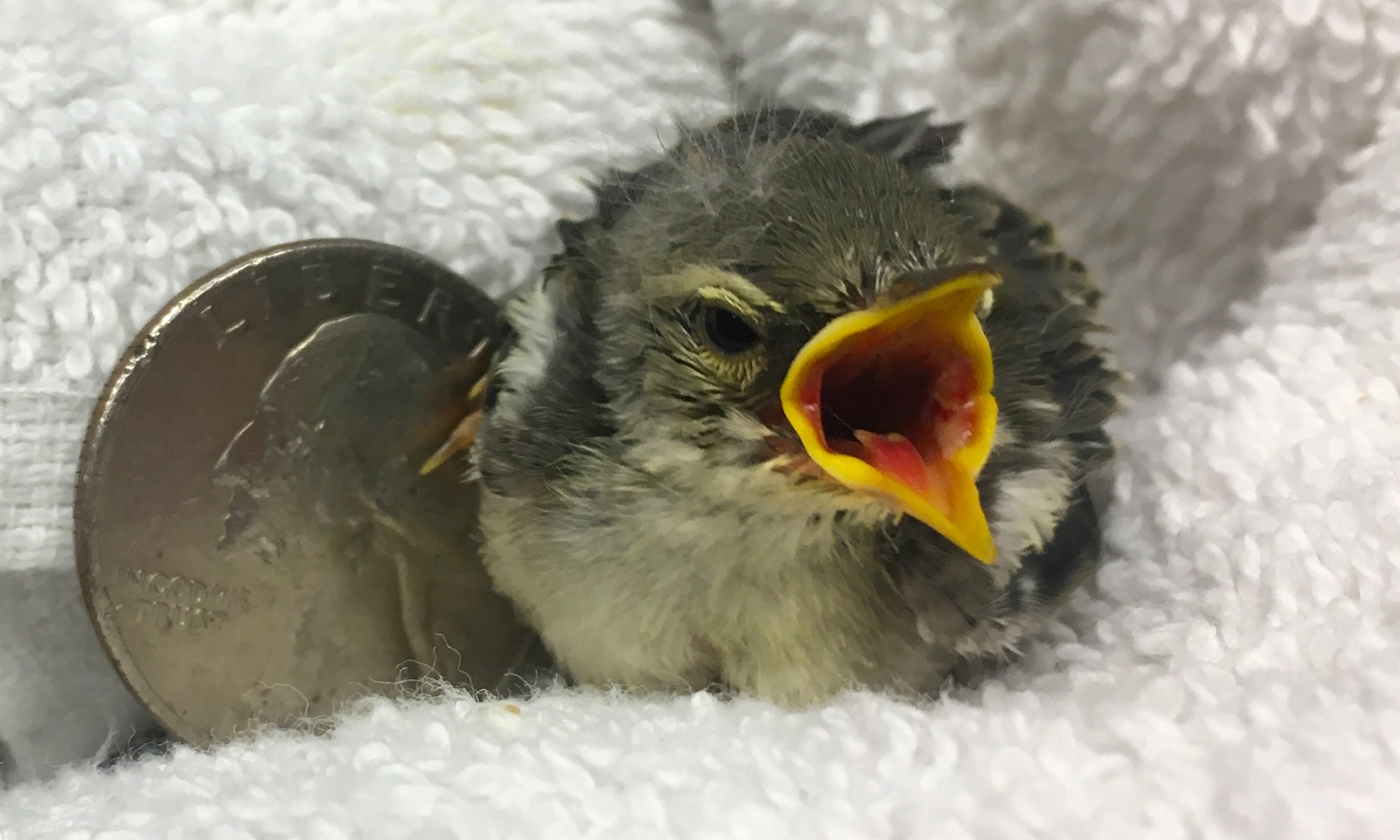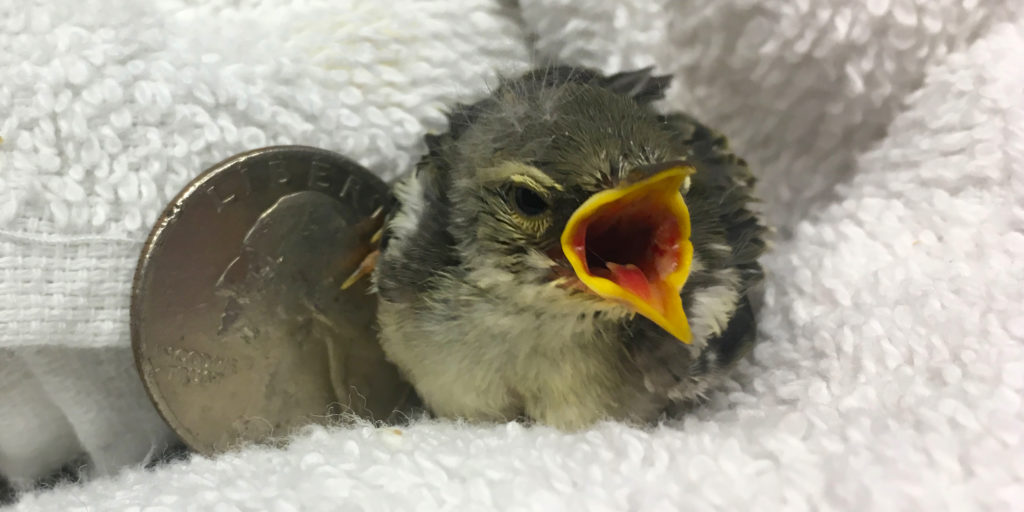

Don’t kidnap baby wildlife. It’s normal for young birds to jump out of the nest—or fledge—and then be followed and fed by their parents for a few weeks. The fledglings can only do short flights low to the ground. This is when their parents are teaching them how to live, avoid predators, and find food. If you don’t see an obvious injury, it’s often best to leave the animal, especially if it is a baby. Chances are the parents are nearby, and they will regroup. If you know for certain the animal has been orphaned, visit Tennessee Wildlife Resources Agency’s website to find an animal rehabilitator. If you come across injured wildlife, seek veterinary care for the animal.
If you find a nest on the ground, try to put it back in a nearby tree. If you find a baby bird on the ground, look around for a nest. Sometimes, you will find the nest up to 20 feet away. If you can access it, put the bird back in the nest. If the nest is too high, try suspending a bowl-like structure (like an empty margarine tub) from the tree. The baby bird’s cries will often attract the attention of its parents. Keep in mind that baby birds don’t just spread their wings one day and leave the nest for a life on their own. It is normal for fledgling birds to jump around on the ground and follow their parents around from a distance. Depending on the species, that stage can last from two to six weeks. That’s how they learn to fly and find food. If these birds don’t have obvious injuries when you find them, leave them alone and keep your pets away from them.
The Tennessee Department of Agriculture has released new import requirements to protect rabbits from rabbit hemorrhagic disease virus type 2 (RHDV2), a deadly virus.
Mother rabbits only feed their young twice a day. They will stay at a distance so they don’t attract a predator to the nest. If you find a nest of baby rabbits, put the nest and babies back. Baby rabbits that have open eyes and can hop are able to be on their own. Bunnies are on their own very early, at three weeks of age. That means bunnies as small as four inches long survive in the wild. At that size, their speed hasn’t fully developed so their defense mechanism is to freeze, making people think they are injured, when in reality it just makes them easier to catch.
Don’t try to raise the babies on your own, and please don’t try to make a pet out of a wild animal. Their instincts are to fear people; birds can injure their wings against a cage while rabbits can break their legs or back trying to escape.
Regardless of the expertise of a veterinarian or rehabilitator, young wildlife, whether it’s birds, mammals or reptiles, has a better chance to make it to adulthood if they grow up in the wild.